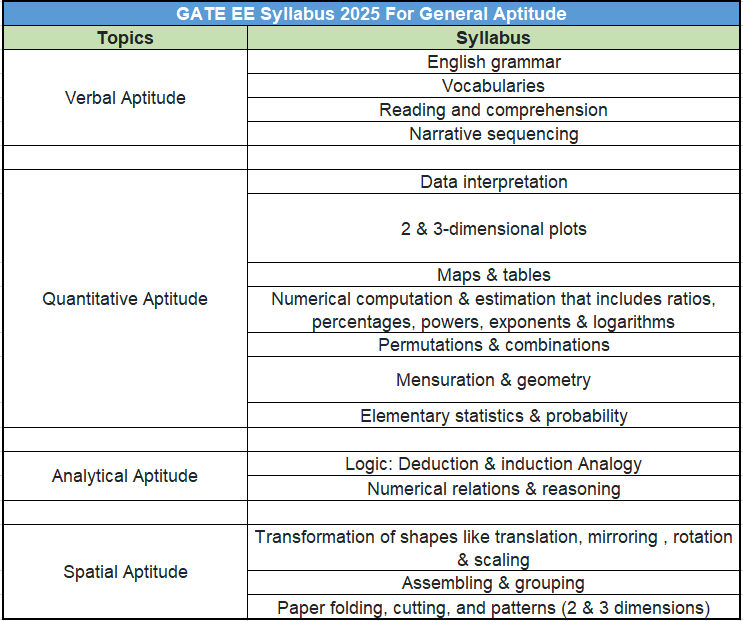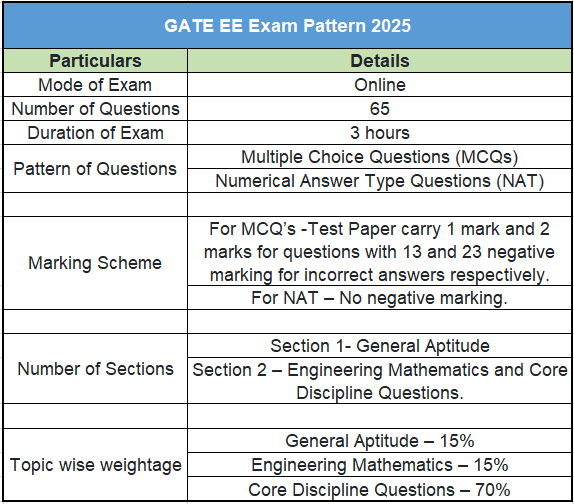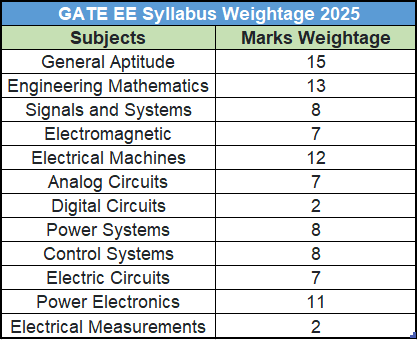
The GATE 2025 Electrical Engineering (EE) exam is a critical step for engineering graduates who wish to pursue higher education in prestigious institutions like the IITs, IISc, and NITs, or to secure top job placements in Public Sector Undertakings (PSUs) like NTPC, BHEL, and Power Grid. The GATE exam is not only a gateway to advanced study but also opens doors to lucrative career opportunities in research, academia, and industry.
In this blog, we will cover the GATE 2025 Electrical Engineering syllabus, exam pattern, marking scheme, and a list of the top five colleges for M.Tech in Electrical Engineering. At the end, we will also discuss why Pratishtha Edu is the best coaching institute in Bangalore for preparing for GATE 2025.
Why GATE 2025 Electrical Engineering is Important
The Graduate Aptitude Test in Engineering (GATE) is one of the most competitive exams in India. Scoring well in the GATE 2025 Electrical Engineering exam can significantly improve your chances of gaining admission to top-tier institutes and securing PSU jobs.
- Higher Education: Admission to M.Tech, MS, or Ph.D. programs in the most prestigious institutions in India, such as the IITs, IISc, and NITs.
- PSU Jobs: Many Public Sector Undertakings (PSUs) use GATE scores for recruiting engineers for top positions, making GATE an important step for those aiming for government jobs.
- Global Recognition: Some foreign universities also accept GATE scores for postgraduate admissions.
GATE 2025 Electrical Engineering Syllabus
Understanding the syllabus is the foundation of any good preparation strategy. The GATE 2025 Electrical Engineering syllabus is designed to assess your knowledge of undergraduate-level concepts. It is broadly divided into three sections: General Aptitude, Engineering Mathematics, and Core Electrical Engineering Subjects.
Here is a detailed breakdown of the syllabus:
1. General Aptitude (GA)
This section, which carries 15% of the total marks, is common across all GATE papers. It focuses on testing your verbal and numerical ability.
- Verbal Ability: Basic grammar, sentence completion, synonyms, antonyms, reading comprehension.
- Numerical Ability: Basic arithmetic, probability, percentages, ratio and proportion, averages.

2. Engineering Mathematics
This section covers fundamental mathematical concepts used in engineering.
- Linear Algebra: Matrices, eigenvalues, eigenvectors.
- Calculus: Differentiation, integration, limits, and continuity.
- Probability and Statistics: Mean, variance, probability distributions.
- Differential Equations: First and second-order differential equations, initial and boundary value problems.
- Complex Analysis: Analytic functions, conformal mapping, and Cauchy’s integral theorem.
3. Core Electrical Engineering Subjects
a. Electric Circuits
- Network Theorems: Thevenin’s, Norton’s, Superposition.
- Transient Response: RL, RC, RLC circuits with DC and AC excitation.
- Resonance: Series and parallel resonance.
b. Electromagnetic Fields
- Coulomb’s Law: Electric field intensity, electric flux density, Gauss’s law.
- Ampere’s Law: Magnetic field intensity, Biot-Savart’s law, Maxwell’s equations.
- Electromagnetic Waves: Propagation of EM waves, reflection, refraction.
c. Signals and Systems
- Continuous-time and Discrete-time Signals: Fourier series, Laplace transform, Z-transform.
- System Response: Time-domain and frequency-domain analysis of linear time-invariant systems.
d. Electrical Machines
- Transformers: Equivalent circuit, phasor diagrams, efficiency, regulation.
- Induction Machines: Performance characteristics, torque-speed characteristics, circle diagram.
- Synchronous Machines: Voltage regulation, power-angle characteristics, parallel operation.
e. Power Systems
- Generation and Transmission: Load flow analysis, power factor correction.
- Protection: Circuit breakers, relays, types of faults, fault analysis.
- Stability: Steady-state and transient stability, equal area criterion.
f. Control Systems
- Feedback Principles: Open-loop and closed-loop systems, transfer functions.
- Stability Analysis: Routh-Hurwitz, Nyquist, and Bode plots.
- Controllers: PID controllers, root locus.
g. Power Electronics
- Switching Devices: Diodes, thyristors, MOSFETs, IGBTs.
- Converters: Rectifiers, inverters, DC-DC converters, AC-AC converters.
- Applications: UPS, power supplies, renewable energy systems.
GATE 2025 Electrical Engineering Exam Pattern
The GATE 2025 Electrical Engineering exam consists of 65 questions for a total of 100 marks. The exam duration is 3 hours, and it is conducted online as a computer-based test (CBT).
Key Highlights of the Exam Pattern:
- Total Marks: 100
- Number of Questions: 65
- Sections: General Aptitude, Engineering Mathematics, Core EE subjects.
- Duration: 3 hours
- Negative Marking: MCQs have negative marking (1/3 for 1-mark questions and 2/3 for 2-mark questions). No negative marking for Numerical Answer Type (NAT) questions.
Types of Questions:
- Multiple Choice Questions (MCQs): Questions with four options, only one correct answer.
- Multiple Select Questions (MSQs): Questions with more than one correct option.
- Numerical Answer Type (NAT): Questions where the answer is a number, and you need to type it into the system.

GATE 2025 Electrical Engineering Marking Scheme
- General Aptitude: 15 marks (5 questions of 1 mark and 5 questions of 2 marks).
- Engineering Mathematics: 13 marks.
- Core Electrical Engineering: 72 marks.

The marking scheme is crucial for time management and attempting the exam strategically. Focus on accuracy for MCQs due to negative marking, and capitalize on NAT questions where no negative marking is involved.
Top 5 Colleges for GATE 2025 Electrical Engineering
Securing a top rank in GATE 2025 Electrical Engineering can provide access to some of the best institutions for M.Tech and Ph.D. in India. Here are the top five colleges:
1. Indian Institute of Technology (IIT) Bombay
- Known for its cutting-edge research and state-of-the-art labs in power systems, electrical machines, and control systems.
2. Indian Institute of Technology (IIT) Delhi
- IIT Delhi offers world-class infrastructure and a curriculum designed to nurture innovation and research in electrical engineering.
3. Indian Institute of Science (IISc) Bangalore
- One of the best institutes for research in electromagnetics, power electronics, and renewable energy systems.
4. Indian Institute of Technology (IIT) Kanpur
- IIT Kanpur’s electrical engineering department is highly reputed for its work in communications systems and signal processing.
5. National Institute of Technology (NIT) Trichy
- NIT Trichy has excellent placement records and offers a top-notch program in power systems, electronics, and automation.
Preparation Tips for GATE 2025 Electrical Engineering
Here are some effective strategies to help you succeed in GATE 2025 EE:
- Understand the Syllabus: Cover all the topics thoroughly, especially core subjects like Power Systems, Electrical Machines, and Control Systems.
- Practice Previous Year Papers: Solve past papers to get familiar with the exam pattern and the types of questions asked.
- Take Mock Tests: Mock tests help improve speed and accuracy. Analyze your performance and work on your weak areas.
- Time Management: Focus on time management while solving both numerical and theoretical problems.
- Join a Coaching Institute: A well-structured coaching program can guide you through the preparation process, providing valuable insights and resources.
Why Pratishtha Edu is the Best Coaching for GATE 2025 Electrical Engineering in Bangalore
When it comes to preparing for GATE 2025 Electrical Engineering, the choice of a coaching institute can make a huge difference. Pratishtha Edu stands out as the best coaching institute in Bangalore for the following reasons:
1. Experienced Faculty
- The institute has a team of highly experienced faculty members who are experts in Electrical Engineering and have a deep understanding of the GATE exam pattern.
2. Comprehensive Study Material
- Pratishtha Edu provides meticulously designed study materials, covering the entire GATE EE syllabus. The materials include subject-wise notes, practice questions, and previous year’s papers.
3. Regular Mock Tests
- Mock tests are conducted on a regular basis, simulating the actual GATE exam environment. Detailed performance analysis helps students identify their strengths and weaknesses.
4. Personalized Attention
- With small batch sizes, Pratishtha Edu ensures that every student gets personalized attention. This helps in better doubt resolution and more focused guidance.
5. Proven Track Record
- Over the years, Pratishtha Edu has consistently produced top GATE rankers, making it the go-to coaching institute for serious GATE aspirants.
Preparing for GATE 2025 Electrical Engineering is a journey that requires dedication, the right resources, and expert guidance. With the right preparation strategy and support from a coaching institute like Pratishtha Edu, you can maximize your chances of success.
Are you ready to take the next step towards your dream of cracking GATE 2025? Join Pratishtha Edu, the best GATE coaching institute in Bangalore, and make your GATE preparation journey a success!
Pratishtha Edu: Your Partner in GATE 2025 ECE Success.
Follow us on Instagram, Facebook, Twitter, YouTube, Quora, Medium